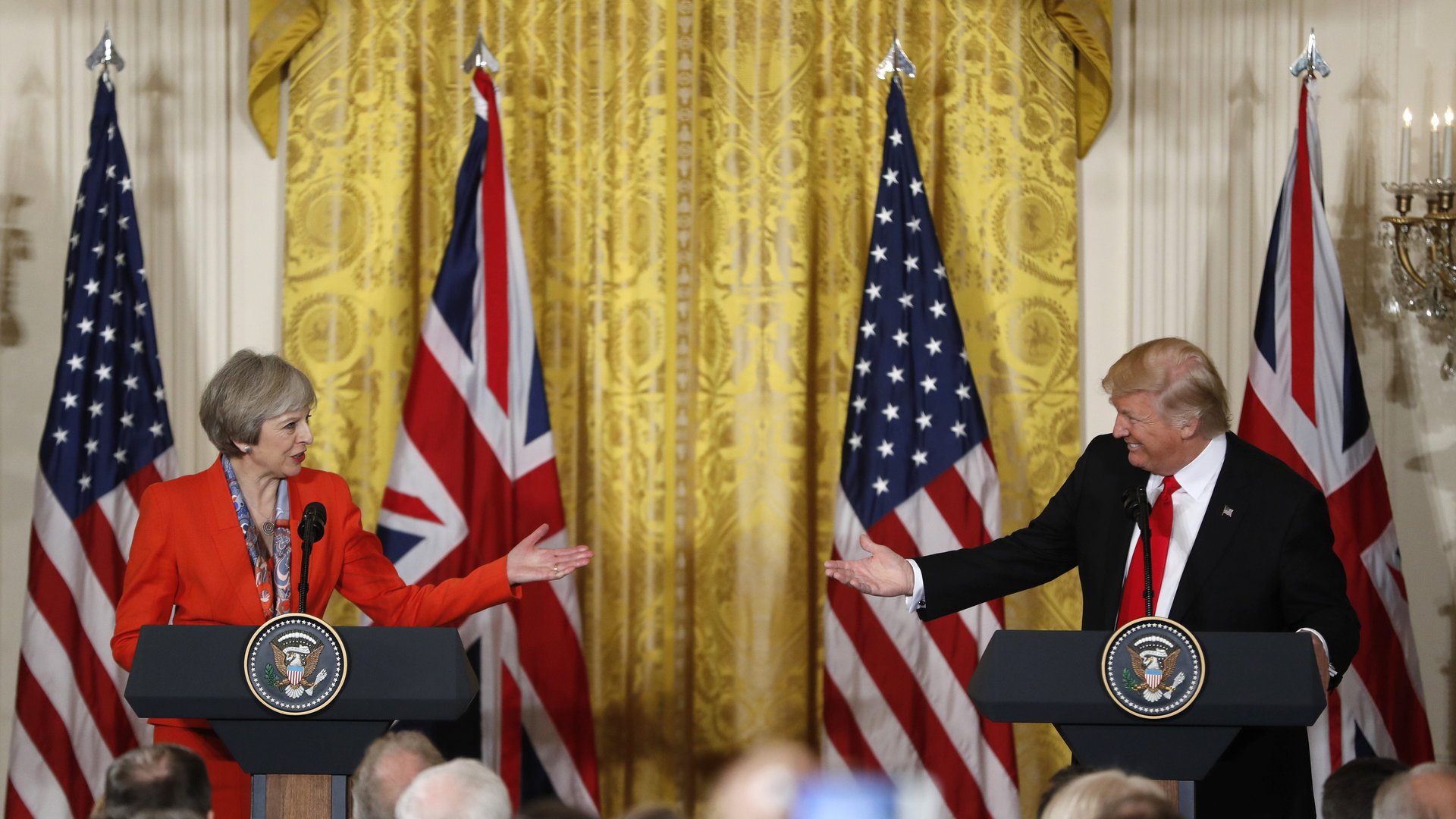Snap is worried about Brexit, too
Snap, the parent company of ephemeral-messaging app Snapchat, publicly filed to become a public company today. As most companies do when they file with US Securities and Exchange Commission, Snap outlined a series of risks to its future that potential investors should consider before buying shares in the company. But some of Snap’s concerns are rather existential, including the relative stability of the European Union in the future.


Snap, the parent company of ephemeral-messaging app Snapchat, publicly filed to become a public company today. As most companies do when they file with US Securities and Exchange Commission, Snap outlined a series of risks to its future that potential investors should consider before buying shares in the company. But some of Snap’s concerns are rather existential, including the relative stability of the European Union in the future.
Like many around the world, Snap seems to be worried about how Brexit—the UK’s referendum decision to leave the European Union—will affect it. “Exposure to United Kingdom political developments, including the outcome of the referendum on membership in the European Union, could be costly and difficult to comply with and could seriously harm our business,” the company said in its filing.
The UK is still figuring out how it will invoke the formal exit from the European Union, and is running out of time to do so before the deadline that prime minister Theresa May set when she took over. Even when Brexit happens, there will likely be years of uncertainty around regulations for businesses (and consumers) as the UK sets up rules that it has been receiving from Brussels for years. Volatility in the world markets, and how both the UK and European Union handle data privacy could affect cloud-based businesses like Snap’s.
Here’s the full list of Brexit-related concerns from Snap’s filing:
In June 2016, a referendum was passed in the United Kingdom to leave the European Union, commonly referred to as “Brexit.” This decision creates an uncertain political and economic environment in the United Kingdom and other European Union countries, even though the formal process for leaving the European Union may take years to complete. We have licensed a portion of our intellectual property to our United Kingdom subsidiary and intend to base a significant portion of our non-U.S. operations in the United Kingdom. The long-term nature of the United Kingdom’s relationship with the European Union is unclear and there is considerable uncertainty when any relationship will be agreed and implemented. The political and economic instability created by Brexit has caused and may continue to cause significant volatility in global financial markets and uncertainty regarding the regulation of data protection in the United Kingdom. Brexit could also have the effect of disrupting the free movement of goods, services, and people between the United Kingdom, the European Union, and elsewhere. The full effect of Brexit is uncertain and depends on any agreements the United Kingdom may make to retain access to European Union markets. Consequently, no assurance can be given about the impact of the outcome and our business, including operational and tax policies, may be seriously harmed or require reassessment if our European operations or presence become a significant part of our business.